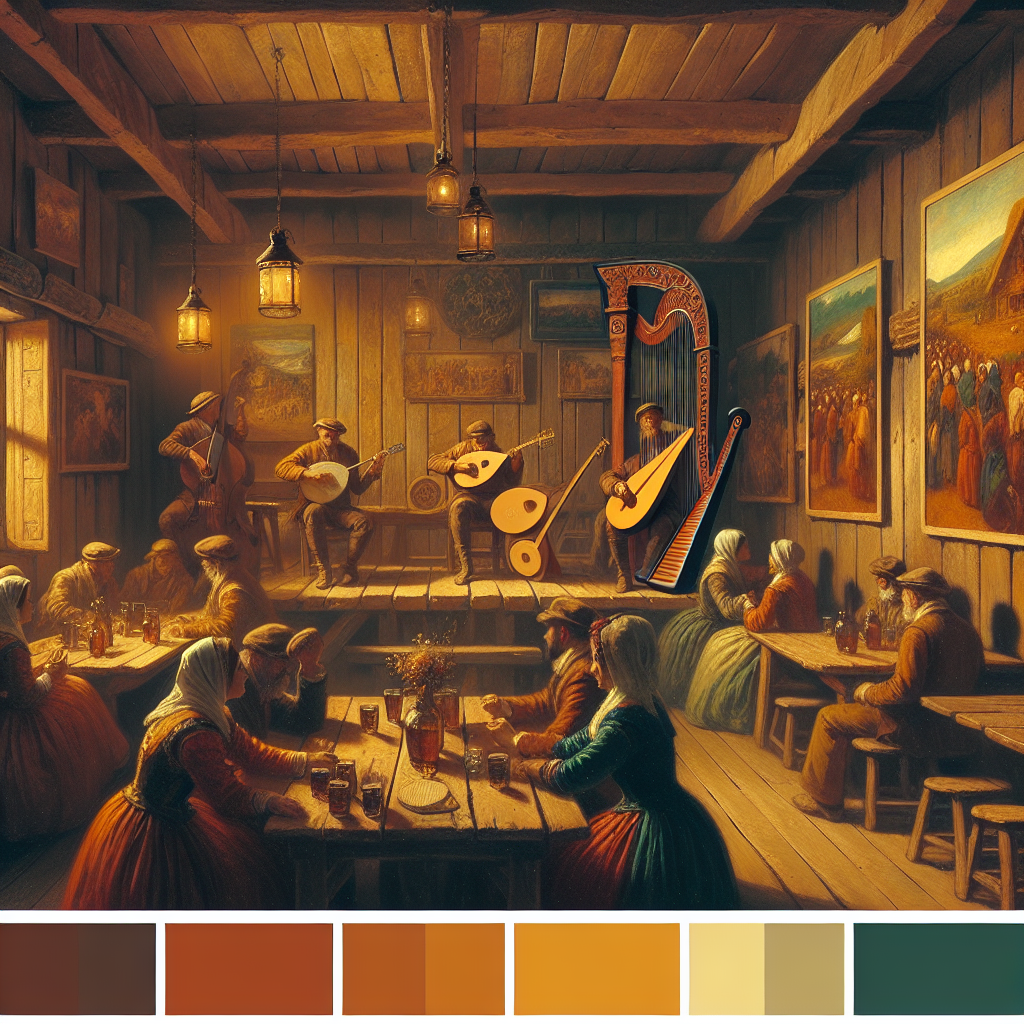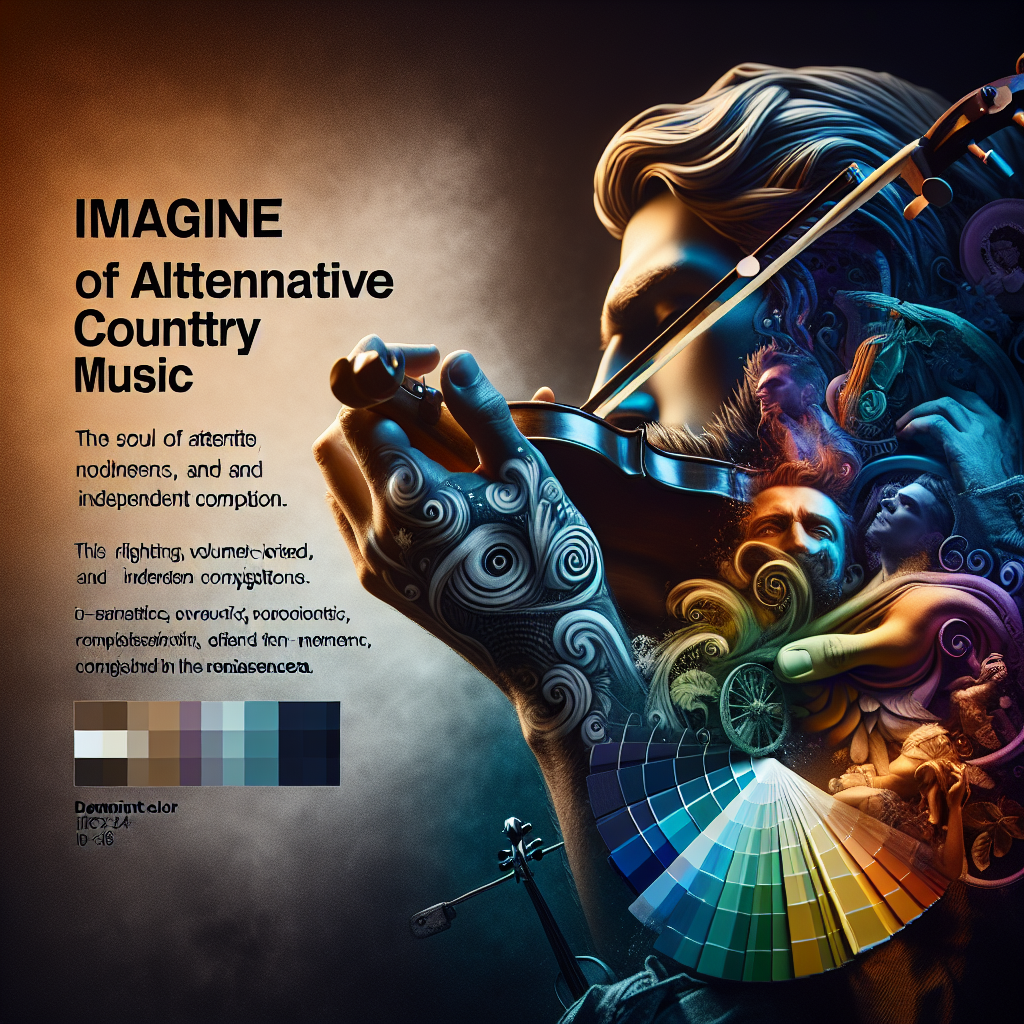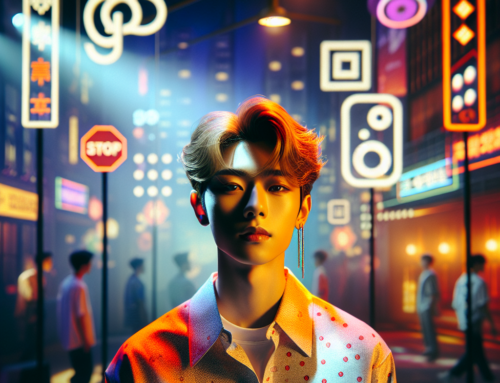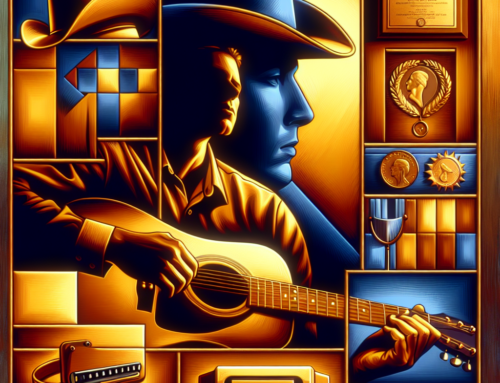-
Table of Contents
- Introduction
- Exploring the Roots: How Alternative Country Emerged from Traditional Sounds
- Indie Influences: The Impact of Alternative Country on Modern Music
- Top Alternative Country Artists You Need to Know
- The Evolution of Lyrics: Storytelling in Alternative Country
- Alternative Country Playlists: Essential Tracks for Indie Fans
- The Future of Alternative Country: Trends and Predictions
- Q&A
- Conclusion
“Alternative Country: Where Indie Spirit Meets Country Soul.”
Introduction
Alternative country, often referred to as “alt-country,” is a subgenre of country music that blends traditional country elements with influences from alternative rock, folk, and Americana. Emerging in the late 20th century, this genre appeals to indie music fans who appreciate the storytelling and authenticity of country music but seek a sound that diverges from mainstream country. Alt-country artists often incorporate unconventional instruments, raw production techniques, and introspective lyrics, creating a sound that is both familiar and refreshingly distinct. This genre has carved out a niche for those who value the roots of country music while embracing a more eclectic and innovative approach.
Exploring the Roots: How Alternative Country Emerged from Traditional Sounds
Alternative country, often referred to as alt-country, represents a fascinating evolution within the broader genre of country music, appealing particularly to indie music fans. This subgenre emerged as a response to the polished, commercialized sound that dominated mainstream country music in the late 20th century. To understand how alternative country carved its niche, it is essential to explore its roots and the traditional sounds from which it evolved.
The origins of alternative country can be traced back to the 1960s and 1970s, a period marked by significant cultural shifts and musical experimentation. During this time, artists began to push the boundaries of traditional country music, infusing it with elements from rock, folk, and punk. This fusion was not merely a stylistic choice but a reflection of a broader desire to return to the raw, authentic storytelling that characterized early country music. As mainstream country became increasingly commercialized, with slick production and formulaic lyrics, a growing number of musicians and fans yearned for a sound that was more genuine and reflective of real-life experiences.
One of the pivotal moments in the emergence of alternative country was the influence of artists like Gram Parsons and The Byrds, who pioneered the blending of rock and country, creating what was then known as “country rock.” Parsons, in particular, was instrumental in shaping this new sound, emphasizing the emotional depth and narrative richness of country music while incorporating the rebellious spirit of rock. This laid the groundwork for future artists to explore and expand upon these themes, ultimately leading to the development of alternative country.
As the genre continued to evolve, the 1980s and 1990s saw the rise of bands and artists who further defined the alt-country sound. Groups like Uncle Tupelo, Whiskeytown, and The Jayhawks drew inspiration from traditional country while incorporating the DIY ethos of punk and the introspective lyricism of folk. This blend of influences resonated with indie music fans who were drawn to the authenticity and sincerity that these artists brought to their music. The lyrics often tackled themes of heartache, wanderlust, and the struggles of everyday life, echoing the storytelling tradition of classic country while offering a fresh perspective.
Moreover, the rise of independent record labels during this period played a crucial role in the proliferation of alternative country. These labels provided a platform for artists who were often overlooked by major record companies, allowing them to experiment with their sound and reach audiences who were eager for something different. This independence from mainstream constraints enabled alt-country musicians to maintain their artistic integrity and connect with listeners on a deeper level.
In conclusion, the emergence of alternative country from traditional sounds is a testament to the genre’s adaptability and enduring appeal. By drawing on the rich heritage of country music while embracing diverse influences, alt-country has created a space where authenticity and innovation coexist. For indie fans, this subgenre offers a compelling alternative to mainstream country, providing a musical experience that is both rooted in tradition and refreshingly original. As alternative country continues to evolve, it remains a vibrant and dynamic force within the music landscape, bridging the gap between the past and the present while inviting listeners to explore its rich tapestry of sounds and stories.
Indie Influences: The Impact of Alternative Country on Modern Music
Alternative country, often referred to as alt-country, represents a fascinating intersection between traditional country music and the broader indie music scene. This genre, which emerged in the late 20th century, has significantly influenced modern music by blending the storytelling and instrumental elements of country with the raw, unpolished sound characteristic of indie music. As we delve into the impact of alternative country on contemporary music, it is essential to understand the genre’s roots and its evolution over time.
Initially, alternative country arose as a response to the polished, commercialized sound of mainstream country music. Artists and bands sought to return to the genre’s authentic roots, drawing inspiration from the likes of Hank Williams and Johnny Cash while incorporating elements from rock, punk, and folk. This fusion created a sound that was both familiar and refreshingly new, appealing to listeners who appreciated the narrative depth of country music but craved the edginess and authenticity of indie music. Consequently, alternative country carved out a niche for itself, attracting a diverse audience that spanned traditional country fans and indie enthusiasts alike.
The influence of alternative country on modern music is evident in the way it has reshaped the sonic landscape of both country and indie genres. For instance, many contemporary country artists have adopted the raw, stripped-down production style typical of alt-country, favoring acoustic instruments and live recordings over heavily produced tracks. This shift has allowed for a more genuine expression of emotion and storytelling, resonating with audiences who value authenticity. Moreover, the lyrical content of alternative country often explores themes of heartache, wanderlust, and social issues, providing a rich tapestry of narratives that challenge the often formulaic themes found in mainstream country music.
In addition to influencing country music, alternative country has left an indelible mark on the indie music scene. Indie artists have embraced the genre’s emphasis on storytelling and authenticity, incorporating these elements into their own music. This cross-pollination has led to the emergence of sub-genres such as indie folk and Americana, which blend the introspective lyricism of indie music with the traditional instrumentation of country. As a result, the boundaries between genres have become increasingly blurred, fostering a more inclusive and diverse musical landscape.
Furthermore, the rise of alternative country has encouraged a DIY ethos among musicians, empowering them to take control of their creative processes. This approach aligns with the indie music scene’s emphasis on artistic independence and has inspired countless artists to self-produce their work, bypassing traditional music industry gatekeepers. Consequently, alternative country has played a pivotal role in democratizing music production, allowing for a wider array of voices and perspectives to be heard.
In conclusion, alternative country has had a profound impact on modern music by bridging the gap between traditional country and indie music. Its emphasis on authenticity, storytelling, and artistic independence has resonated with both artists and audiences, leading to a more diverse and dynamic musical landscape. As the genre continues to evolve, it will undoubtedly inspire future generations of musicians to explore new creative possibilities, further enriching the tapestry of modern music. Through its unique blend of influences, alternative country has not only redefined the boundaries of its parent genres but has also paved the way for a more inclusive and innovative musical future.
Top Alternative Country Artists You Need to Know

Alternative country, often referred to as alt-country, is a subgenre that blends the traditional elements of country music with influences from indie rock, folk, and Americana. This fusion creates a sound that appeals to fans of both country and indie music, offering a fresh take on the classic genre. As the boundaries of music genres continue to blur, alt-country has emerged as a compelling option for those seeking something different from mainstream country. To truly appreciate this genre, it is essential to explore the artists who have shaped and continue to redefine it.
One of the most influential figures in the alt-country scene is Ryan Adams. Known for his prolific songwriting and emotive performances, Adams has consistently pushed the boundaries of country music. His ability to blend introspective lyrics with a rock-infused sound has earned him a dedicated following among indie fans. Albums like “Heartbreaker” and “Gold” showcase his talent for crafting songs that resonate on a deeply personal level while maintaining a universal appeal.
Transitioning from the established to the emerging, Sturgill Simpson is another artist who has made significant contributions to the alt-country genre. With a sound that draws from classic country, psychedelic rock, and soul, Simpson’s music defies easy categorization. His album “Metamodern Sounds in Country Music” is a testament to his innovative approach, offering a modern twist on traditional themes. Simpson’s willingness to experiment with different sounds and styles has positioned him as a trailblazer in the alt-country movement.
Similarly, Margo Price has garnered attention for her authentic storytelling and vintage sound. Often compared to country legends like Loretta Lynn and Dolly Parton, Price brings a contemporary edge to her music that resonates with indie audiences. Her debut album, “Midwest Farmer’s Daughter,” received critical acclaim for its raw honesty and classic country influences. Price’s ability to convey personal struggles and triumphs through her music has solidified her place as a key figure in the alt-country landscape.
In addition to these artists, Jason Isbell stands out as a prominent voice in the genre. Formerly a member of the Drive-By Truckers, Isbell has carved out a successful solo career with his poignant songwriting and soulful performances. His album “Southeastern” is often hailed as a masterpiece, exploring themes of redemption, love, and loss with a sincerity that resonates with listeners. Isbell’s ability to connect with his audience through his music has made him a beloved figure in both the alt-country and indie communities.
Furthermore, the band Wilco has played a pivotal role in shaping the alt-country sound. Led by frontman Jeff Tweedy, Wilco’s music incorporates elements of rock, folk, and experimental sounds, creating a unique and dynamic listening experience. Albums like “Yankee Hotel Foxtrot” and “A Ghost Is Born” showcase the band’s innovative approach to songwriting and production. Wilco’s influence extends beyond the alt-country genre, inspiring countless artists across various musical landscapes.
In conclusion, the alt-country genre offers a rich tapestry of sounds and stories that appeal to indie fans and country enthusiasts alike. Artists like Ryan Adams, Sturgill Simpson, Margo Price, Jason Isbell, and Wilco have each contributed to the genre’s evolution, blending traditional country elements with modern influences to create something truly unique. As alt-country continues to grow and evolve, these artists remain at the forefront, pushing the boundaries of what country music can be and inviting listeners to explore new musical horizons.
The Evolution of Lyrics: Storytelling in Alternative Country
Alternative country, a subgenre that has emerged as a compelling fusion of traditional country music and indie sensibilities, offers a unique platform for storytelling that resonates with a diverse audience. This genre, while rooted in the classic themes of country music, such as love, loss, and rural life, distinguishes itself through its innovative approach to lyrics and narrative structure. As we delve into the evolution of lyrics within alternative country, it becomes evident that this genre has redefined storytelling by embracing authenticity, complexity, and introspection.
Initially, country music was characterized by straightforward narratives that often revolved around everyday experiences and emotions. However, alternative country artists have expanded this narrative framework by incorporating elements of introspection and existential reflection. This shift is not merely a stylistic choice but a response to the changing cultural landscape, where listeners seek deeper connections and more nuanced stories. By weaving intricate tales that explore the human condition, alternative country artists invite listeners to engage with their music on a more profound level.
Moreover, the evolution of lyrics in alternative country is marked by a departure from the conventional tropes of mainstream country music. While traditional country often relies on familiar themes and predictable story arcs, alternative country artists challenge these conventions by introducing ambiguity and complexity into their narratives. This approach not only enriches the storytelling experience but also allows for a broader exploration of themes such as identity, alienation, and resilience. By doing so, alternative country provides a voice for those who may feel marginalized or misunderstood, offering a sense of belonging and validation.
In addition to thematic innovation, the lyrical evolution in alternative country is characterized by a distinctive use of language and imagery. Artists in this genre often employ poetic devices such as metaphor, symbolism, and allegory to convey their messages, creating a rich tapestry of meaning that invites interpretation and reflection. This lyrical sophistication not only elevates the storytelling but also aligns with the indie ethos of artistic authenticity and experimentation. As a result, alternative country lyrics often possess a literary quality that appeals to listeners who appreciate the artistry of language and the power of words to evoke emotion and insight.
Furthermore, the evolution of lyrics in alternative country is closely tied to the genre’s embrace of diverse musical influences. By incorporating elements from rock, folk, and blues, alternative country artists create a sonic landscape that complements their lyrical narratives. This fusion of musical styles not only enhances the storytelling experience but also reflects the genre’s commitment to innovation and boundary-pushing. As a result, alternative country offers a dynamic and multifaceted listening experience that resonates with indie fans who value creativity and originality.
In conclusion, the evolution of lyrics in alternative country represents a significant shift in the storytelling tradition of country music. By embracing complexity, authenticity, and artistic experimentation, alternative country artists have redefined the narrative possibilities of the genre, offering listeners a rich and engaging tapestry of stories that speak to the human experience. As this genre continues to evolve, it will undoubtedly inspire new generations of artists and listeners to explore the depths of storytelling and the power of music to connect us all.
Alternative Country Playlists: Essential Tracks for Indie Fans
Alternative country, often referred to as alt-country, is a subgenre that blends the traditional elements of country music with the raw, unpolished sounds of indie rock. This fusion creates a unique listening experience that appeals to fans of both genres, offering a refreshing take on the classic country sound. For indie fans looking to explore this genre, curating an essential playlist can serve as an excellent introduction to the diverse sounds and themes that alt-country has to offer.
To begin with, it is important to recognize the roots of alternative country, which can be traced back to the 1980s and 1990s. During this period, artists sought to break away from the polished production and commercialism of mainstream country music. They aimed to return to the genre’s storytelling roots while incorporating elements of punk, rock, and folk. This movement was spearheaded by bands like Uncle Tupelo, whose seminal album “No Depression” is often credited with laying the groundwork for the alt-country genre. Including tracks from this album in a playlist provides listeners with a historical context and a sense of the genre’s origins.
Transitioning from the foundational sounds of Uncle Tupelo, one cannot overlook the contributions of artists like Ryan Adams and his band Whiskeytown. Their music exemplifies the emotional depth and lyrical complexity that alt-country is known for. Songs such as “16 Days” and “Excuse Me While I Break My Own Heart Tonight” showcase Adams’ ability to blend introspective lyrics with a sound that is both familiar and innovative. These tracks are essential for any playlist aiming to capture the essence of alt-country.
Moreover, the genre’s evolution can be seen in the works of artists like Gillian Welch and David Rawlings, whose minimalist approach highlights the storytelling aspect of country music. Their song “Time (The Revelator)” is a prime example of how alt-country can strip down to its core elements, focusing on narrative and emotion. This track, with its haunting melodies and poignant lyrics, serves as a bridge between traditional country and modern indie sensibilities.
As the genre continued to evolve, bands like Wilco and The Jayhawks further expanded its boundaries. Wilco’s “Yankee Hotel Foxtrot” is a landmark album that pushed the limits of what alt-country could be, incorporating experimental sounds and production techniques. Including tracks like “I Am Trying to Break Your Heart” in a playlist not only showcases the genre’s versatility but also its willingness to embrace innovation.
In addition to these pioneering artists, contemporary musicians such as Sturgill Simpson and Jason Isbell have brought alt-country into the modern era. Their music often addresses contemporary issues while maintaining the genre’s traditional roots. Simpson’s “Turtles All the Way Down” and Isbell’s “Cover Me Up” are exemplary tracks that highlight the ongoing relevance and adaptability of alt-country.
In conclusion, an essential alt-country playlist for indie fans should encompass a range of artists and tracks that illustrate the genre’s rich history and dynamic evolution. By including foundational artists like Uncle Tupelo, emotional storytellers like Ryan Adams, and modern innovators like Sturgill Simpson, listeners can gain a comprehensive understanding of what makes alternative country a compelling and enduring genre. Through this exploration, indie fans may discover a newfound appreciation for the storytelling and authenticity that define alt-country music.
The Future of Alternative Country: Trends and Predictions
As the music industry continues to evolve, the genre of alternative country is carving out a unique niche, appealing to both traditional country enthusiasts and indie music fans. This hybrid genre, which blends the storytelling and instrumentation of classic country with the raw, unpolished sound of indie rock, is gaining traction among a diverse audience. As we look to the future of alternative country, several trends and predictions emerge, suggesting a dynamic evolution that could redefine the boundaries of country music.
One of the most significant trends in alternative country is the increasing influence of digital platforms. With the rise of streaming services and social media, artists have unprecedented access to global audiences. This democratization of music distribution allows alternative country musicians to reach listeners who might not have been exposed to their sound through traditional radio or record labels. Consequently, we can expect a proliferation of diverse voices and styles within the genre, as artists experiment with new sounds and collaborate across genres. This trend is likely to lead to a richer, more varied musical landscape, where the lines between country, rock, folk, and even electronic music continue to blur.
Moreover, the future of alternative country is likely to be shaped by a growing emphasis on authenticity and storytelling. In an era where listeners crave genuine connections with artists, the raw, heartfelt narratives that characterize alternative country resonate deeply. This focus on storytelling is not only a nod to the roots of country music but also a response to the often polished and commercialized nature of mainstream music. As a result, we can anticipate a continued emphasis on lyrical depth and personal expression, with artists drawing from their own experiences to craft songs that speak to universal themes of love, loss, and resilience.
In addition to these artistic trends, the future of alternative country will also be influenced by broader cultural and social movements. As society becomes more aware of issues such as social justice, environmental sustainability, and mental health, these themes are likely to be reflected in the music. Alternative country artists, known for their willingness to tackle complex and sometimes controversial topics, are well-positioned to address these issues in their work. This engagement with contemporary issues not only enriches the genre but also ensures its relevance in an ever-changing world.
Furthermore, the live music scene is expected to play a crucial role in the evolution of alternative country. As the world recovers from the disruptions caused by the COVID-19 pandemic, there is a renewed appreciation for live performances and the communal experience they offer. Alternative country artists, with their emphasis on authenticity and connection, are likely to thrive in this environment. Intimate venues and music festivals that celebrate the genre will provide platforms for artists to connect with fans and showcase their music in a live setting, further solidifying the genre’s place in the musical landscape.
In conclusion, the future of alternative country is poised for exciting developments, driven by technological advancements, a commitment to authenticity, and a responsiveness to cultural shifts. As the genre continues to evolve, it will undoubtedly attract a growing number of indie fans who appreciate its unique blend of tradition and innovation. By embracing these trends and remaining true to its roots, alternative country is set to redefine the boundaries of country music and captivate audiences for years to come.
Q&A
1. **What is Alternative Country?**
Alternative Country is a subgenre of country music that incorporates influences from alternative rock, folk, punk, and other genres, often featuring a more raw and unconventional sound compared to mainstream country.
2. **Who are some notable artists in Alternative Country?**
Notable artists include Uncle Tupelo, Wilco, Ryan Adams, Lucinda Williams, and The Jayhawks, among others.
3. **How does Alternative Country differ from mainstream country music?**
Alternative Country often features more diverse instrumentation, experimental sounds, and lyrics that explore themes beyond the traditional country focus, appealing to indie and rock audiences.
4. **What are some key albums in the Alternative Country genre?**
Key albums include “Anodyne” by Uncle Tupelo, “Strangers Almanac” by Whiskeytown, “Car Wheels on a Gravel Road” by Lucinda Williams, and “Being There” by Wilco.
5. **What themes are commonly explored in Alternative Country music?**
Common themes include introspection, heartache, social issues, and storytelling, often with a more personal or rebellious edge compared to mainstream country.
6. **How has Alternative Country influenced other music genres?**
Alternative Country has influenced genres like Americana and indie rock, contributing to a broader acceptance of genre-blending and fostering a diverse musical landscape.
Conclusion
Alternative country, often referred to as alt-country, is a subgenre that blends traditional country music elements with influences from indie rock, folk, and punk. It appeals to indie fans by offering a raw, authentic sound that often challenges mainstream country norms. Artists in this genre tend to emphasize storytelling, emotional depth, and a DIY ethos, which resonates with listeners seeking authenticity and innovation. Alt-country provides a refreshing take on country music, making it accessible to those who might not typically engage with the genre, while still honoring its roots.




